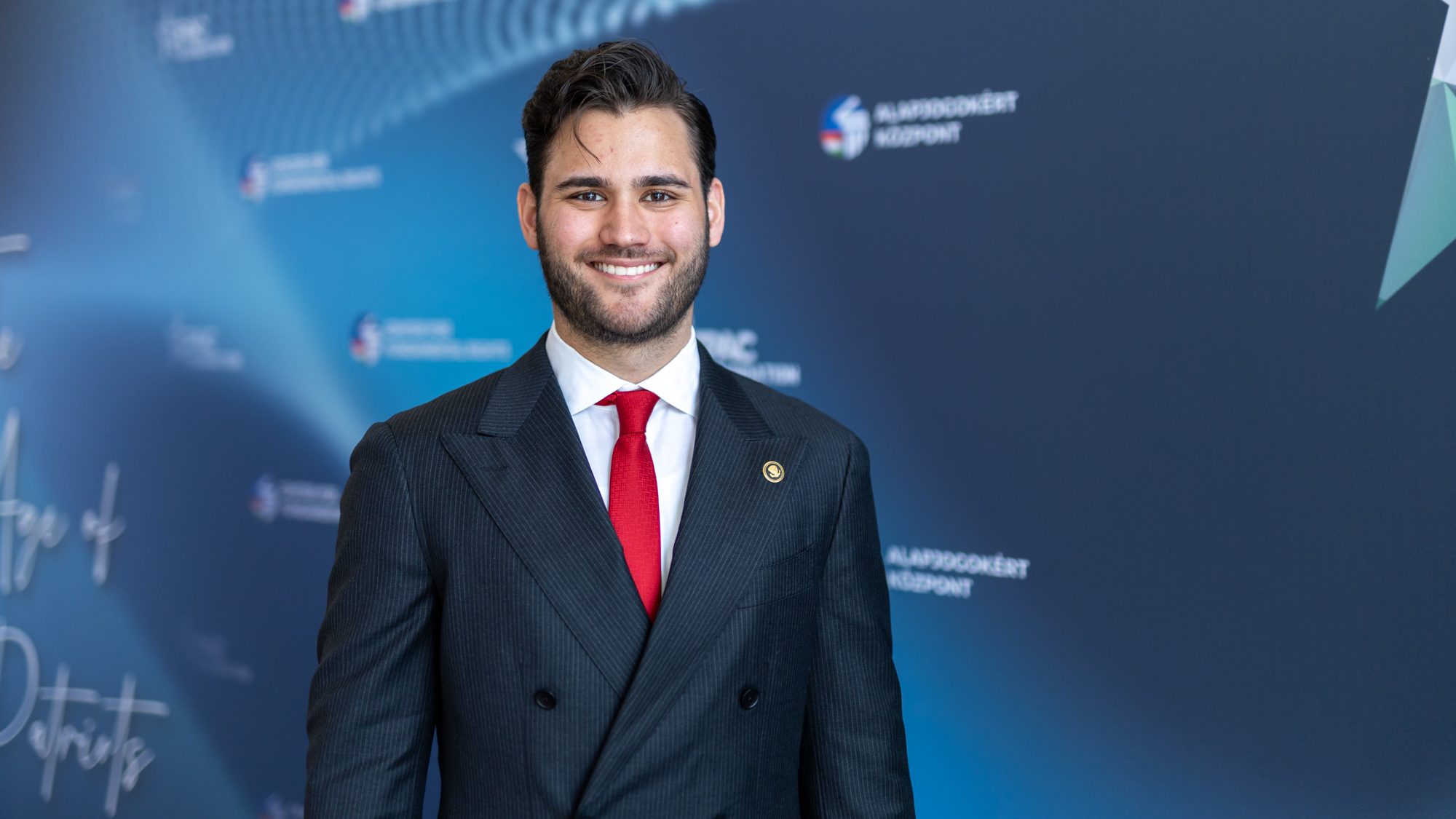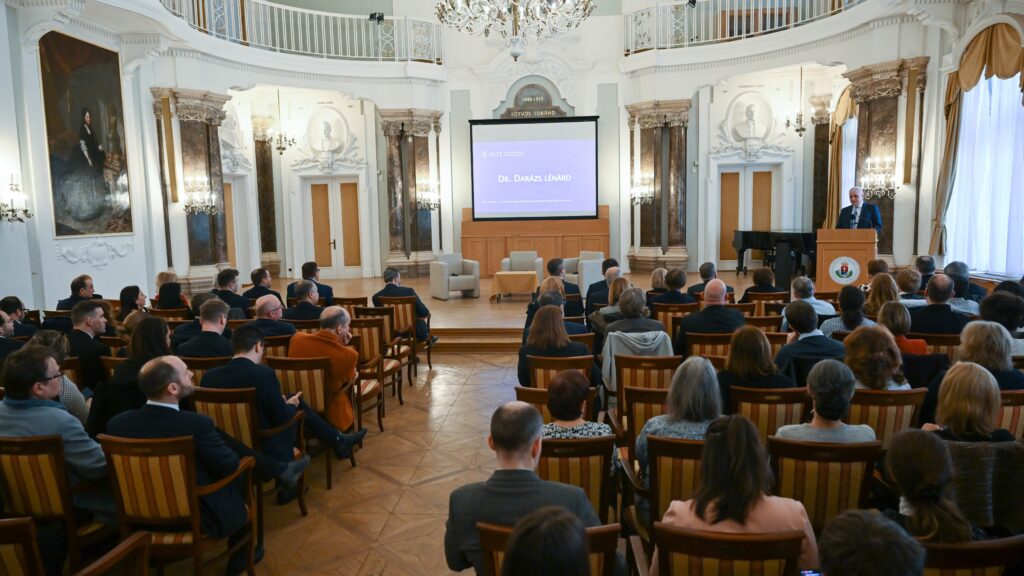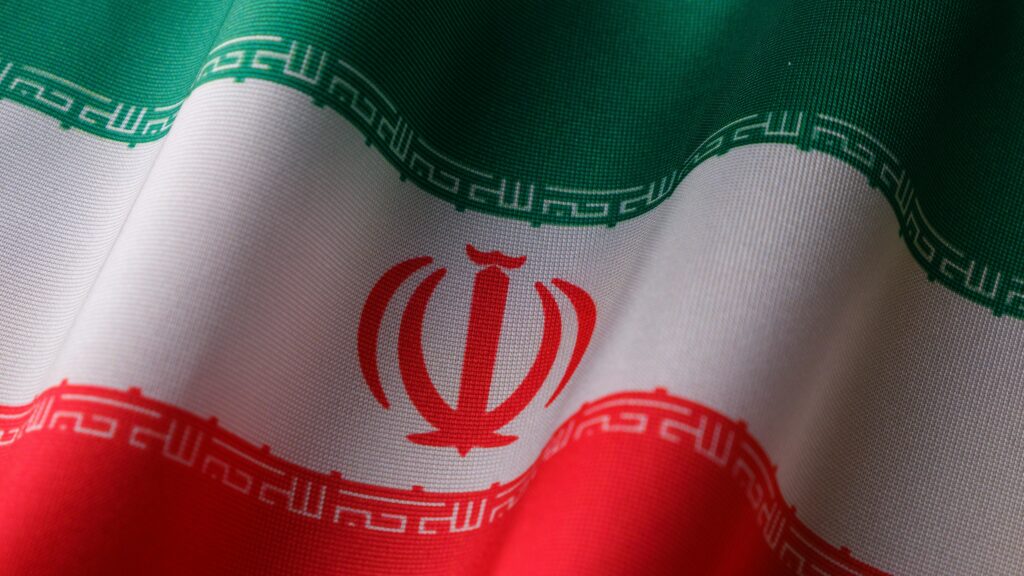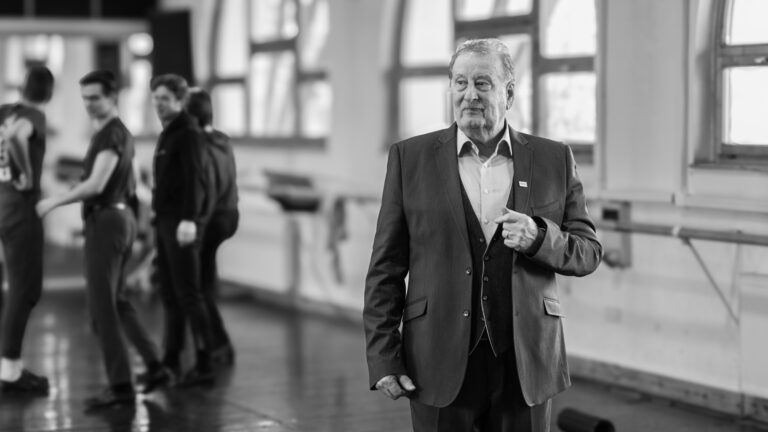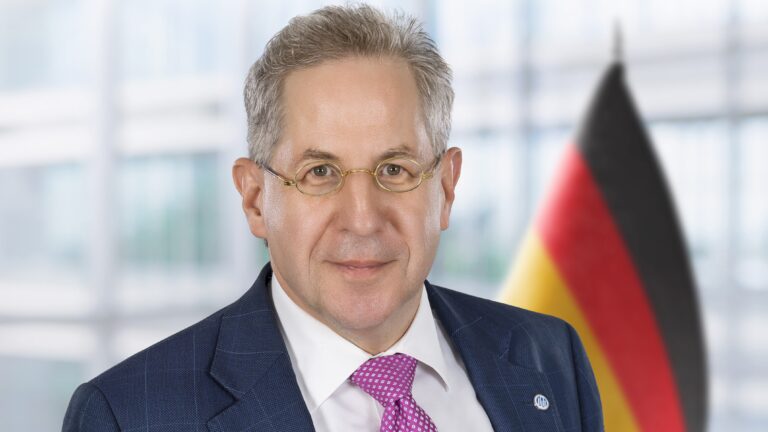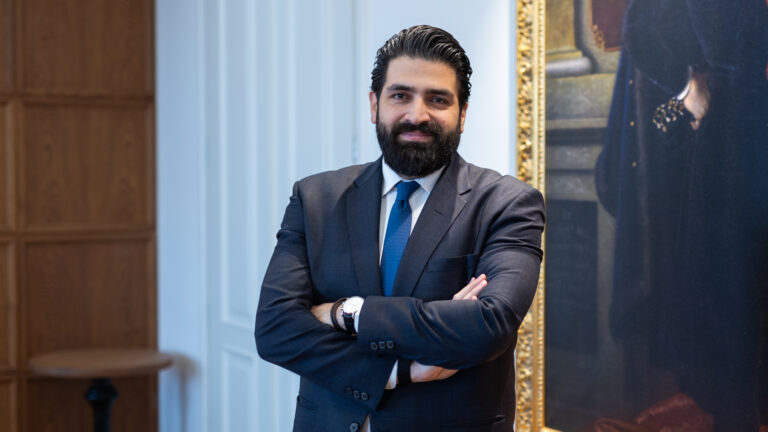Johnny Szani and his family moved to the United States when he was just five years old. He served as an associate on President Donald Trump’s advance team during the 2024 presidential campaign. His previous experience includes working with former House Speaker Kevin McCarthy, Republican Congressman Andy Harris, Pete Sauber, and former Hungarian President Katalin Novák, among others. Mr Szani is a regular guest at CPAC Hungary, where he sat down with Hungarian Conservative to discuss the development of US–Hungary relations under Trump’s second presidency and what to expect in the months ahead.
***
Last time we spoke on the phone, it was after the attempted assassination of President Donald Trump. You said that, if only for a moment, society stood united behind him. What is the situation now?
Yes, right after the assassination attempt against Donald Trump, Americans came together and put their differences aside—though only for a very short time. That was in July last year. Soon afterwards, the heat of the campaign intensified and division returned almost immediately. Then Trump won a historic landslide. Republicans had not won the popular vote since President George W Bush in 2004, two decades ago. Trump also received the highest number of votes ever cast for a Republican candidate. That said, both his agenda and his persona are divisive, so the polarization has clearly returned.
That is reflected in Trump’s approval rating, which has fluctuated since he took office. Why is that?
The implementation of Trump’s agenda has mostly economic consequences—both positive and negative, short- and long-term. People tend to feel those effects most acutely, and they shape public opinion accordingly. That is why his approval rating fluctuates significantly. However, it remains higher than that of the Democrats, who are still somewhat in disarray, trying to regroup after their devastating loss in November 2024.
We also spoke here at CPAC Hungary last year, eagerly awaiting the November election. At the time, you envisioned ‘a new high in Hungarian–American relations that we haven’t seen since Kossuth visited America in the 1850s.’ How would you assess the development of relations since then?
Viktor Orbán is one of Donald Trump’s closest allies—their ideological views are very similar. They both take a firm stance against illegal migration and promote traditional values. Of course, there are some differences. Trump is aware of Orbán’s firm position on Hungary’s relations with Russia and China. He might try to steer him more towards his own foreign policy goals, but he certainly will not pressure Hungary the way the Biden administration did. Over the past four years, US–Hungarian relations reached a new low. While we are still in the early stages of Trump’s second presidency, we can already observe signs of improvement. There are discussions about cooperation in several sectors. Business and trade relations are active, so I am very optimistic about the years ahead.
One symbol of the deteriorated relations was former Ambassador David Pressman. His position remains vacant, with Chargé d’Affaires ad interim Robert Palladino currently heading the embassy. Do you have any insight into Pressman’s possible successor?
I have not heard any specific names, but I can tell you that the next ambassador will likely come from within the State Department—someone who does not necessarily have well-established or extensive connections with the Hungarian government. It will probably not be a high-profile or widely known figure.
One of the first initiatives of the new administration was the restructuring of USAID, which had funded several media outlets and NGOs critical of the Hungarian government. The Orbán administration requested information on the recipients of such funding, but the State Department refused to provide it, allegedly due to concerns that the data might be used against critics of Orbán—citing the transparency proposal currently under debate in the Hungarian Parliament. Are such concerns justified?
I have not heard of any Republicans in either the House or the Senate opposing the Hungarian transparency bill. The reason the State Department did not provide the requested documents is likely due to the fact that it is still full of career diplomats and bureaucrats who are deeply embedded and hard to remove—individuals linked to the previous administration and to the goals of the elite. It is not enough to appoint a new Secretary like Marco Rubio if the deeper structure remains unchanged. Rubio has announced a reorganization of the department, including staff reductions and the elimination of entire bureaus, specifically to limit the influence of those obstructing Trump’s foreign policy agenda. However, the process is still in its early stages.
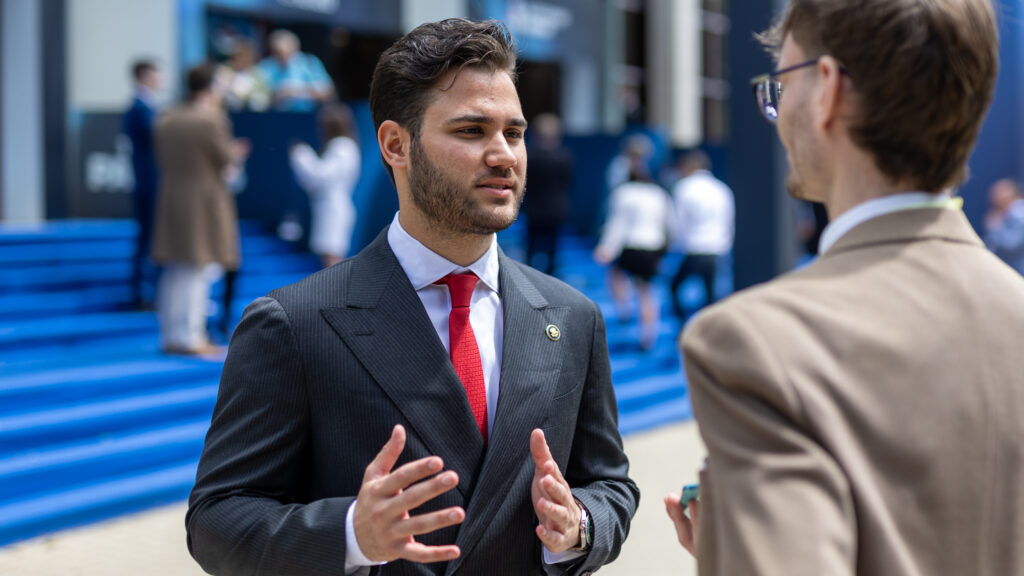
Ending the war in Ukraine is another shared priority of the US and Hungary. However, recent developments suggest a potential collapse of peace talks, and some observers claim the Trump–Putin ‘bromance’ is over.
Trump is making enormous efforts to reach a ceasefire in Ukraine and achieve a lasting peace. I believe his recent statements are part of a broader effort to pressure both Kyiv and Moscow to return to the negotiating table. Just two days ago, Trump stated that he would not impose sanctions on Russia, despite pressure from Senate Republicans, because he does not want to jeopardize the peace talks. While the situation is sometimes tense, I would not say that relations between Trump and Putin are irreparably damaged. The notion of a ‘break-up’ is largely a media-driven narrative that is currently being pushed very aggressively.
These two issues are central to the campaign leading up to next year’s parliamentary elections in Hungary. According to several polls—and even statements from pro-government media figures—Fidesz could face serious competition in 2026. How do you see it?
I would not attach too much importance to the current polling data. We are still a little under a year away from the parliamentary elections in Hungary. Viktor Orbán is what I like to call an ‘election juggernaut’—his support tends to surge drastically in the final months before an election. I believe we will see the same trend in 2026.
Could we expect a Trump endorsement or perhaps an invitation to the White House in the coming months?
Absolutely. Trump and Orbán share a special relationship. They are not only ideologically aligned but also enjoy a strong personal rapport. Back in 2016, Orbán was the first incumbent leader to endorse Trump, even while Trump was still a newcomer in politics. During last year’s campaign, Trump mentioned the Hungarian prime minister more than any other European leader. He also praised Orbán in his video message during the opening ceremony of CPAC Hungary. As for a meeting, I believe it will happen sooner or later. Orbán already visited Washington, DC during Trump’s first term. However, both are very popular and extremely busy leaders. Trump’s foreign policy agenda is moving in several directions. That said, a White House photo with President Trump would certainly benefit Orbán ahead of the election.
Related articles:

